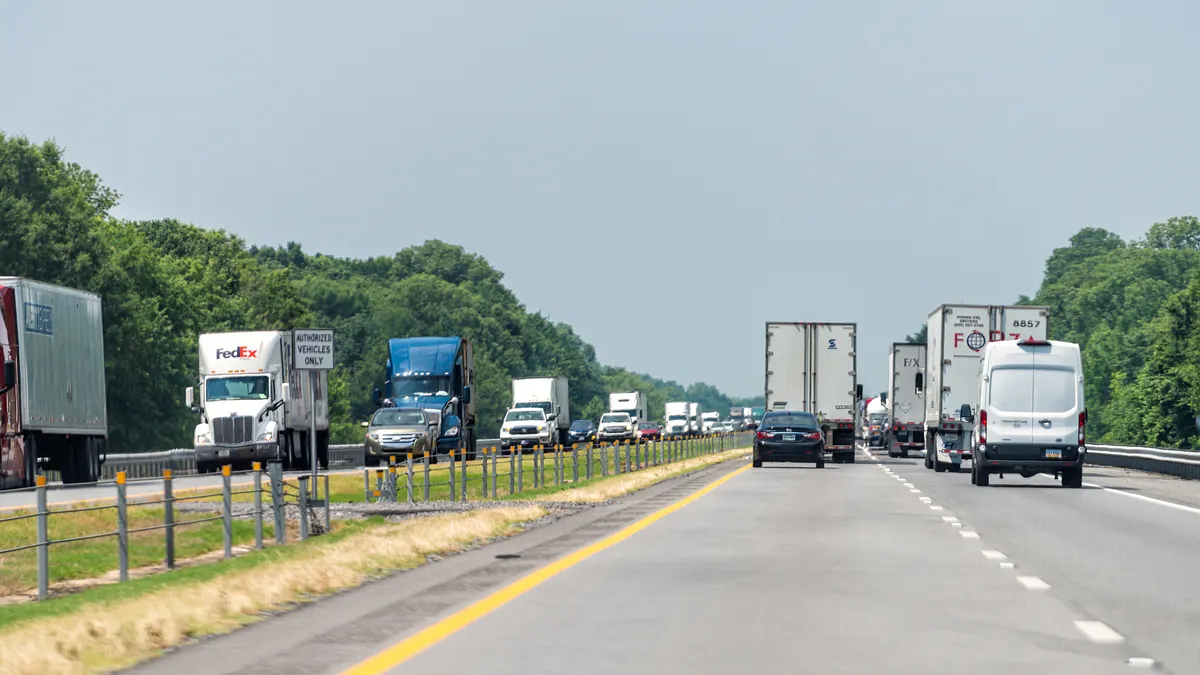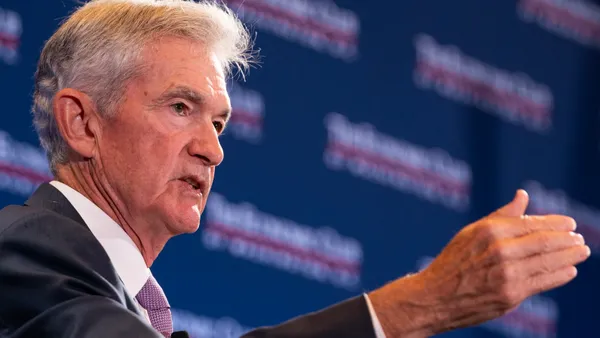Dive Brief:
- U.S. Xpress is partnering with the Massachusetts Institute of Technology's Center for Transportation and Logistics to identify ways for the carrier to improve driver efficiency, according to a recent press release.
- MIT graduate students will use statistical modeling and artificial intelligence to examine GPS data, loaded and unloaded data, driver HOS, shipper rates, appointment times, and arrival and departure trends, according to the release.
- U.S. Xpress is an MIT Supply Chain Exchange partner, which gives the carrier "backstage access to faculty and student research initiatives," Charles Simpson, vice president of strategic intelligence at U.S. Xpress, said in an email. MIT plans to release the results of the study next summer, according to the press release.
Dive Insight:
Though it's too early to say what changes U.S. Xpress will make once the study results are published, the carrier is "confident that [MIT's] study will bear fruit," according to Simpson. The company is particularly hopeful that the findings will help it reduce dwell time and improve appointment scheduling, he said.
"Dwell and appointment scheduling challenges are a long standing issue within the industry that was only magnified during COVID," Simpson said, adding that peak season surges and pandemic-related obstacles create a prime opportunity to study these challenges.
Extended dwell times jumped in March as warehouses filled up and scheduling appointments became futile. And recently, congestion at the California ports of Los Angeles and Long Beach led C.H. Robinson to publish a customer advisory warning of vessel delays, extra loaders, chassis shortages, limitations in appointment windows, increased dwell time for local cargo and a stretched drayage market.
Dwell times in the U.S. were down more than 16% on Nov. 18 compared to the previous week, according to FourKites. But they are continually an area of improvement for the industry and an issue that appears atop drivers' concerns.
In a WorkHound study examining driver concerns during the first half of 2020, 25% of comments received were about logistics. Drivers indicated they felt stuck waiting at some terminals and wanted more information and better communication with shippers and retailers.
This is a problem U.S. Xpress has put resources toward solving, and it has found some success in turning to technology.
"We’ve automated millions of friction points in our processes to drive greater efficiency in our operations. Streamlining so many manual tasks has reduced a good deal of stress (and saved time) for our drivers and our shippers, alike," Simpson said in an email.
The carrier is working to become a "digital transportation solutions provider," and has recruited data scientists to meet this end, he said.
The company has developed parking locators, invested resources in predictive analytics, and improved routing through telematics, geo-fencing and GPS, according to the press release. And U.S. Xpress' Variant carrier brand uses software to automate load planning and scheduling. The carrier said it generates more revenue for drivers and the company.
The coronavirus has added momentum to the adoption of automation. Companies across industries have come to learn that once a task becomes automated, efficiency is improved such that it's unlikely to revert to a manual process.











